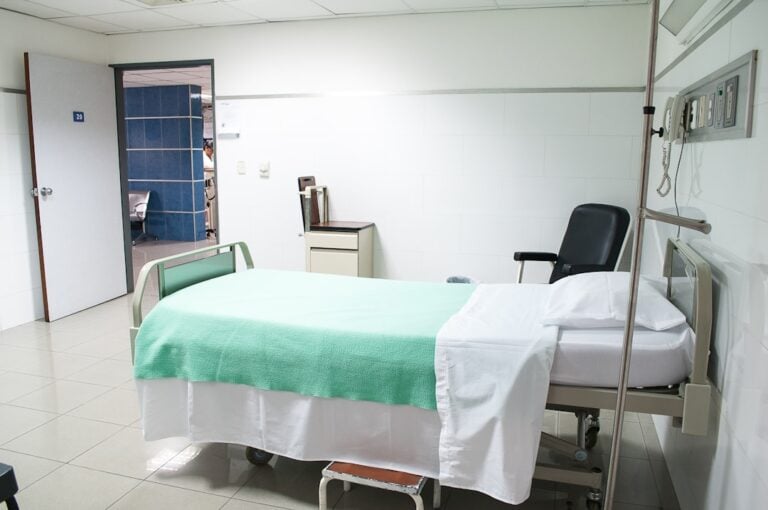Everything You Need to Know About Sleep Apnea and Blood Pressure
Understanding the Connection Between Sleep Apnea and Blood Pressure
Sleep apnea and blood pressure are intricately linked, impacting overall health with significant consequences. Sleep apnea is a serious sleep disorder characterized by repeated interruptions in breathing during the night, leading to decreased oxygen levels in the blood. This condition can manifest as loud snoring, excessive daytime fatigue, and a range of health complications, particularly affecting cardiovascular health.
Key Facts About Sleep Apnea and Blood Pressure
1. Beyond Snoring: Sleep apnea is not just a nuisance; it can lead to severe health issues if left untreated.
2. Quality of Sleep: The disorder significantly affects sleep quality, leaving individuals feeling exhausted during the day.
3. Health Risks: Untreated sleep apnea raises the risk of heart disease and hypertension, making awareness crucial.
Sleep apnea primarily has two forms: obstructive sleep apnea (OSA) and central sleep apnea (CSA). In OSA, the throat muscles relax excessively, blocking the airway, while CSA occurs when the brain fails to transmit the necessary signals for breathing. These interruptions in breathing contribute to a host of health problems, especially regarding blood pressure, increasing the risk of hypertension, heart attacks, and strokes.
What is Sleep Apnea?
Sleep apnea encompasses disruptions in breathing during sleep, which can dramatically impair sleep quality and result in various health issues, including elevated blood pressure. The three primary types include:
Types of Sleep Apnea
Obstructive Sleep Apnea (OSA)
– Most Common: OSA arises when throat muscles relax excessively, narrowing or closing the airway.
– Symptoms: Common signs include loud snoring, gasping for air, and pronounced daytime sleepiness.
Central Sleep Apnea (CSA)
– Less Common: CSA occurs when the brain fails to properly signal the muscles responsible for breathing.
– Symptoms: It can result in episodes of halted breathing, insomnia, and waking with shortness of breath.
Treatment-Emergent Central Sleep Apnea
– Complex Type: This can develop in patients initially diagnosed with OSA while undergoing treatment, presenting symptoms of both OSA and CSA.
Recognizing Symptoms of Sleep Apnea
Identifying sleep apnea can be challenging, as the symptoms of OSA and CSA often overlap. Here’s a rundown of common symptoms:
– Loud Snoring: Often noticed by those sleeping nearby.
– Gasping for Air: Sudden awakenings due to choking sensations.
– Morning Headaches: Resulting from disrupted sleep cycles.
– Daytime Fatigue: Persistent tiredness during waking hours.
– Irritability: Mood disturbances caused by inadequate restful sleep.
Understanding the Causes of Sleep Apnea
Obstructive Sleep Apnea (OSA)
OSA arises when the muscles at the back of the throat relax excessively, leading to airway blockage and reduced oxygen levels. This causes the brain to rouse the individual briefly to reopen the airway, often with no recollection of these disruptions.
Central Sleep Apnea (CSA)
CSA, in contrast, involves a lack of signals from the brain to the breathing muscles, resulting in a person awakening feeling short of breath without any physical obstruction of the airway.
Diagnosis and Treatment Options
Diagnosis of Sleep Apnea
If you suspect sleep apnea may be affecting you, consult with your healthcare provider. Diagnostic methods typically include:
– Sleep Study (Polysomnography): Conducted in a sleep lab.
– Home Sleep Tests: More convenient and less comprehensive assessments.
Treatment Options
The treatment strategy for sleep apnea varies depending on severity and type:
– CPAP Therapy: A Continuous Positive Airway Pressure machine helps keep your airway open during sleep.
– Lifestyle Changes: Weight loss, quitting smoking, and limiting alcohol can improve conditions.
– Oral Appliances: Devices designed to hold the jaw forward and keep the throat open.
– Surgical Options: Involves removing tissue or repositioning the jaw.
How Sleep Apnea Affects Blood Pressure
Mechanisms of Impact
The link between sleep apnea, particularly OSA, and blood pressure is well established:
– Oxygen Level Drops: Breathing interruptions lead to decreased oxygen levels, triggering stress responses in the body.
– Strain on Cardiovascular System: Sudden oxygen drops force the heart to work harder, causing blood pressure to spike.
– Sympathetic Nervous System Activation: The body reacts to perceived threats, increasing blood pressure.
– Chronic Inflammation: OSA can cause systemic inflammation, leading to vascular damage and hypertension.
– Morning Surge: A common phenomenon where blood pressure spikes upon waking, heightening cardiovascular risk.
Risk Factors Influencing Sleep Apnea and Blood Pressure
Several factors may increase the likelihood of both conditions:
– Obesity: Excess weight, particularly around the neck, can block airways.
– Neck Circumference: A thicker neck heightens the risk of airway collapse during sleep.
– Alcohol and Smoking: Both relax throat muscles and increase airway obstruction risk.
– Chronic Nasal Congestion: This makes breathing through the nose difficult, aggravating OSA.
– Medical Conditions: Conditions like hypertension and type 2 diabetes can exacerbate sleep apnea prevalence.
Treatment Options for Sleep Apnea and Blood Pressure
Understanding how to manage both sleep apnea and its impact on blood pressure is crucial.
CPAP Therapy
Using a CPAP machine is a cornerstone of treatment and can significantly lower blood pressure over time. Consistent nightly use is essential for effectiveness.
Lifestyle Modifications
Changes such as adopting a healthy diet, engaging in regular exercise, and ceasing smoking not only improve overall health but also mitigate both sleep apnea and hypertension.
Conclusion
It’s imperative to acknowledge the crucial relationship between sleep apnea and blood pressure. Managing both conditions effectively not only mitigates the risk of severe health complications, including heart attacks and strokes, but also enhances your overall quality of life.
By focusing on consistent use of CPAP therapy, adhering to prescribed medications, and implementing lifestyle changes, you can take significant strides towards better health. Regular consultations with your healthcare provider will further ensure optimal management of both conditions. Prioritizing your sleep health is a vital step towards leading a healthier and more fulfilling life.


















